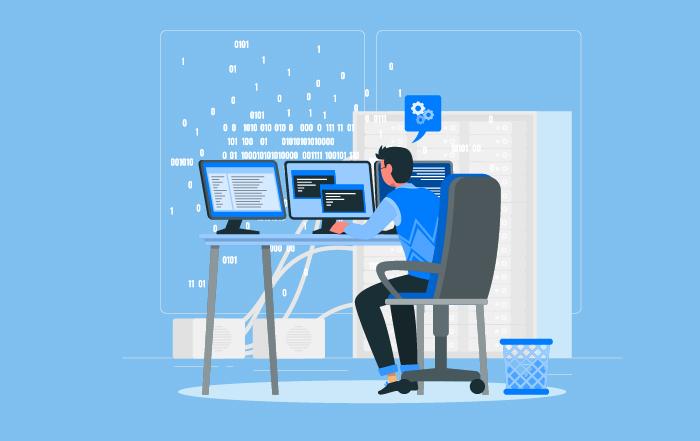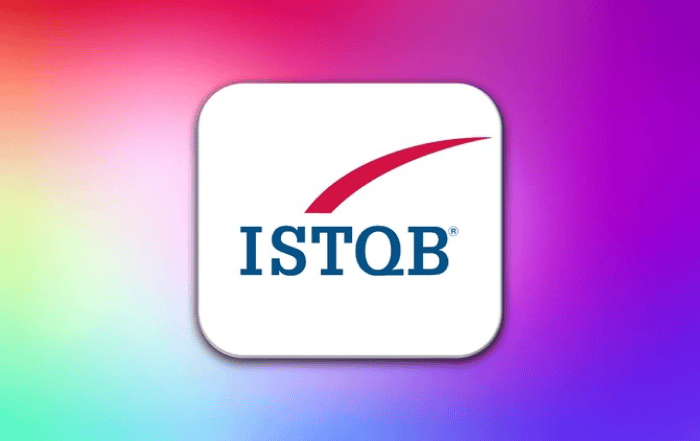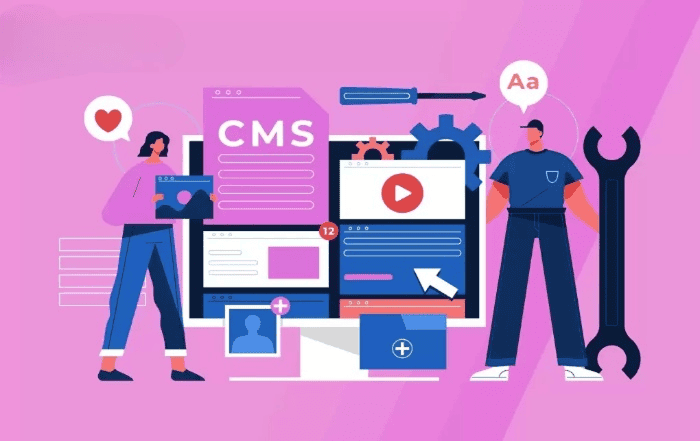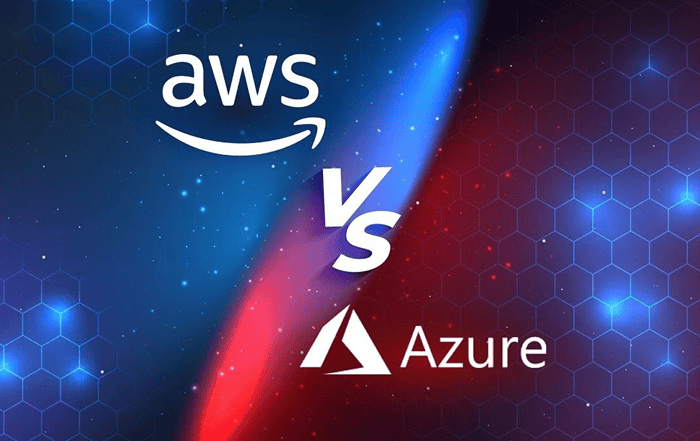
Agile testing has become crucial in the current fast-paced software development environment. You can become an expert Agile tester by acquiring the information and abilities provided by the ISTQB Agile Tester. This in-depth manual explores the certification and offers the knowledge and tools needed to improve your professional credibility and career possibilities.
Understanding the Essentials
ISTQB Agile Tester Certification: Foundation Level
What is the ISTQB Agile Tester Extension Certification?
The Certified Tester Foundation Level – Agile Tester (CTFL-AT) certification extends the ISTQB Foundation Level (CTFL) certification. It’s designed specifically for testers working in Agile environments, validating your ability to work effectively within Agile teams. This certification ensures you understand the principles and practices essential for Agile testing.
Significance in Validating Your Skills for Agile Testing
The CTFL-AT certification demonstrates your proficiency in Agile testing methodologies, making you a valuable asset in Agile development projects. It is globally recognised, enhancing your professional credibility and career prospects. Employers will realize your ability to adapt to Agile processes, which are increasingly becoming the norm in the software development industry.
What Skills Will You Gain?
Through this certification, you’ll develop several core testing competencies, including:
- Agile Testing Principles and Practices: Learn about Agile development approaches like Scrum and Kanban and how to integrate testing with iterative development and incremental delivery inside these frameworks.
- Test Planning and Estimation in Agile Projects: Create effective test plans that accommodate the rapid pace of Agile development and accurately estimate testing efforts despite changing requirements.
- Collaboration Within Cross-Functional Agile Teams: Gain skills to work effectively with developers, product owners, and other stakeholders, facilitating smoother interactions and more integrated testing processes.
- Applying Relevant Testing Techniques and Tools in an Agile Environment: To enhance the quality and efficacy of your testing projects, master techniques such as exploratory testing, test automation, and continuous integration.
ISTQB Agile Tester Certification: Cost vs. Benefits
ISTQB Agile Tester Certification Cost
- Exam Fees: These can vary depending on location but typically range from moderate to high. Check with your local ISTQB board for precise pricing.
- Study Materials include instructor-led guidance, books, and online courses. The type and depth of material you choose might significantly impact the price.
- Training Expenses: If you choose to attend a formal training course, this can add to the cost. These courses provide structured learning environments and direct interaction with instructors.
Career Boost
- Increased Earning Potential: Certified Agile testers often command higher salaries than their non-certified counterparts.
- Enhanced Job Prospects: As Agile methodologies become more prevalent, the demand for skilled Agile testers rises.
- Greater Industry Recognition: The certification is globally recognised, enhancing your credibility and professional standing.
Preparing for Success
ISTQB Agile Tester Mock Tests: Strategies & Resources
Why ISTQB Agile Tester Mock Tests Matter;
- Identifying Knowledge Gaps: Practice exams help pinpoint areas where your understanding is lacking.
- Gauging Readiness: Mock tests simulate the actual exam environment.
- Improving Time Management: They help you practise managing your time during the exam.
- Familiarity with the Format: Mock tests familiarise you with the exam format and question style.
Finding High-Quality ISTQB Agile Tester Mock Tests
- Official ISTQB CTFL-AT Practice Exams: These are the most accurate representations of the actual exam.
- Reputable Online Testing Platforms: Websites with positive reviews and quality practice tests.
- Training Providers: Many training courses include mock tests in their curriculum.
ISTQB Agile Tester Study Material Overview & Recommendations
Exploring Your Options
- ISTQB-Approved CTFL-AT Syllabus and Sample Questions: Foundational resources outlining exam content.
- Books and eBooks: Comprehensive publications on Agile testing and the CTFL-AT exam.
- Online Courses: Both self-paced and instructor-led courses offer structured learning paths.
- Online Resources: Articles, tutorials, and video lectures supplement your study.
Choosing the Right Fit
- Visual Learners: Opt for video courses and mind maps.
- Kinesthetic Learners: Look for interactive exercises and online tools.
- Budget-Conscious Learners: Free resources, such as online articles and tutorials, can be very effective.
Deepening Your Expertise
Exploring the ISTQB Agile Tester Syllabus in Detail
Demystifying the Syllabus
- Agile Testing Principles and Practices: Cover the Agile Manifesto, critical methodologies like Scrum and Kanban, and their impact on testing practices.
- Test Management in Agile Projects: Managing testing activities within Agile frameworks.
- Test Techniques and Tools for Agile Testing: Techniques like exploratory testing, TDD, BDD, and automation tools.
- ISTQB Core Testing Principles Applied to Agile: Applying traditional testing principles to Agile projects.
Exam Preparation Tips
- Agile Testing Principles and Practices: Start with the Agile Manifesto and study different Agile methodologies.
- Test Management in Agile Projects: Practice creating test plans for Agile projects.
- Test Techniques and Tools for Agile Testing: Focus on specific Agile testing techniques.
- ISTQB Core Testing Principles Applied to Agile: Review how traditional testing principles apply to Agile environments.
Avoiding Pitfalls
Accessing ISTQB Agile Tester Dumps: Risks and Alternatives
The Allure of ISTQB Agile Tester Dumps
Exam dumps seem appealing due to their promise of easy answers. Still, they carry significant risks, including inaccurate information, focus on memorisation, risk of disqualification, and undermining the certification’s integrity.
Effective Alternatives
- Utilise High-Quality Resources: Use reliable study materials such as ISTQB-approved resources and reputable training courses.
- Embrace Active Learning: Engage in practice tests, workshops, and online testing communities.
- Focus on Understanding: Prioritise a deep understanding of core testing concepts.
- Build Your Skills: Participate in hands-on exercises and simulated Agile testing projects.
ISTQB Foundation Level vs. Agile Tester Certification
Foundation First
The ISTQB Foundation Level (CTFL) certification is a recommended prerequisite for several reasons:
- Core Testing Principles: It provides a solid grounding in the basic principles and practices of software testing, which are essential before moving on to more specialised areas.
- Foundation for Further Learning: Understanding the fundamentals makes grasping more complex concepts in Agile testing easier.
Agile or Foundation? Differentiate between the two certifications:
- Foundation Level (CTFL): This certification covers the basics of software testing, including testing techniques, test management, and the software development lifecycle. It’s ideal for those new to testing or those looking to solidify their foundational knowledge.
- Agile Tester (CTFL-AT): This certification builds on the Foundation Level by focusing on how to apply testing principles in Agile projects. It’s suitable for those with some testing experience who want to specialise in Agile environments.
Codelattice: Your Partner for ISTQB Agile Tester Certification
Codelattice offers comprehensive training courses for the ISTQB Agile Tester Certification and is committed to professional development and certification programs.
Why Choose Codelattice?
- Expert Instructors: Learn from experienced professionals with real-world insights.
- Comprehensive Curriculum: The course covers all necessary material for the certification exam.
- Practice Exams and Resources: Access practice exams, study materials, and other resources.
- Supportive Learning Environment: Join a collaborative community and receive support from peers and instructors.
Conclusion
The ISTQB Agile Tester Certification can significantly boost your professional prospects by validating your skills and knowledge in Agile testing. You can become a proficient Agile tester by choosing ethical study methods, leveraging high-quality resources, and understanding the value of continuous learning. Partnering with Codelattice can further enhance your learning experience, providing you with the support and expertise needed to excel. Embrace this opportunity to advance your career and contribute to successful Agile development projects.
FAQ:
- What is the ISTQB Agile Tester Certification?
The ISTQB Agile Tester Certification is an extension of the ISTQB Foundation Level certification, designed to validate your skills and knowledge in Agile testing methodologies. It demonstrates your ability to work effectively within Agile teams and adapt to Agile processes.
- What are ISTQB Agile Tester Mock Tests, and why are they important?
ISTQB Agile Tester Mock Tests are practice exams that simulate the actual certification exam. They are essential for identifying knowledge gaps, gauging readiness, improving time management, and familiarising the exam format.
- What study materials are recommended for the ISTQB Agile Tester Certification?
Recommended study materials for the ISTQB Agile Tester Certification include ISTQB-approved syllabus and sample questions, books and eBooks on Agile testing, online courses (self-paced and instructor-led), and online resources such as articles, tutorials, and video lectures.
- What is the ISTQB Agile Tester Foundation Level?
The ISTQB Agile Tester Foundation Level (CTFL-AT) is a certification that extends the ISTQB Foundation Level. It focuses on the principles and practices of Agile testing, providing a solid grounding for testers working in Agile environments.
- What is the ISTQB Agile Tester Extension Certification?
The ISTQB Agile Tester Extension Certification (CTFL-AT) extends the Foundation Level certification, designed explicitly for Agile environments. It validates your ability to apply Agile testing principles and practices.
- What is the cost of the ISTQB Agile Tester Certification?
The ISTQB Agile Tester Certification costs include exam fees, study materials, and potential training expenses. Exam fees vary by location, and study materials can range from affordable books to more expensive online courses or workshops.
- Who is an ISTQB Agile Technical Tester?
An ISTQB Agile Technical Tester is a certified professional specialising in Agile testing methodologies, focusing on technical skills such as test automation, continuous integration, and Agile testing techniques within Agile teams.
- What is the difference between ISTQB Foundation Level and Agile Tester Certification?
The ISTQB Foundation Level (CTFL) certification covers basic software testing principles, techniques, and development lifecycle. The Agile Tester Certification (CTFL-AT) builds on this foundation, focusing on applying testing principles in Agile projects.
- What is the ISTQB Advanced Level Agile Technical Tester Certification?
The ISTQB Advanced Level Agile Technical Tester Certification is an advanced certification for testers with significant experience in Agile environments. It covers advanced Agile testing techniques, test automation, and testing integration in Agile development.
- What does an ISTQB Agile Tester Course typically include?
An ISTQB Agile Tester Course typically includes a comprehensive curriculum covering Agile testing principles, processes, practices, test automation, tools used in Agile environments, and mock exams for practice.
- What are the risks of using ISTQB Agile Tester Dumps?
Using ISTQB Agile Tester Dumps carries risks such as inaccurate or outdated information, focusing on memorisation rather than understanding, potential disqualification from the exam, and undermining the certification’s integrity and professional reputation.
- What topics are covered in the ISTQB Agile Tester Syllabus?
The ISTQB Agile Tester Syllabus covers Agile testing principles and practices, test management in Agile projects, test techniques and tools for Agile testing, and applying ISTQB core testing principles to Agile environments.







